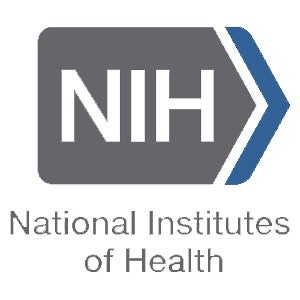Below is a listing of the major funding sponsors that make the Center for Theoretical Biological Physics possible.
National Science Foundation - Directorate for Mathematical & Physical Sciences - Physics Division
The Division of Physics (PHY) is the unit of the Federal Government with primary responsibility for the health of physics research and education in the nation's colleges and universities. The Division is comprised of disciplinary programs covering experimental research in the following major subfields of physics: Atomic, Molecular, Optical and Plasma Physics; Elementary Particle Physics; Gravitational Physics; Nuclear Physics; Particle and Nuclear Astrophysics; Physics at the Information Frontier; Physics of Living Systems; and Education and Interdisciplinary Research with Theoretical Physics programs in Atomic, Molecular, and Optical Physics (TAMOP), Elementary Particle Physics, Nuclear Physics, Particle Astrophysics and Cosmology, and Mathematical Physics. Physics of Living Systems, Gravitational Physics and Physics at the Information Frontier support both theoretical and experimental projects.
The NSF Directorate for Mathematical and Physical Sciences consists of the Divisions of Astronomical Sciences, Chemistry, Materials Research, Mathematical Sciences, and Physics, as well as the Office of Multidisciplinary Activities. These organizations comprise the basic structure for MPS support of research and education. The mission of MPS is to harness the collective efforts of the mathematical and physical sciences communities to address the most compelling scientific questions, educate the future advanced high-tech workforce, and promote discoveries to meet the needs of the Nation. The MPS Divisions support both disciplinary and interdisciplinary activities and partner with each other and with other NSF Directorates in order to effectively encourage basic research across the scientific disciplines.
National Science Foundation - Directorate for Biological Sciences – Molecular and Cellular Biosciences Division
The Division of Molecular and Cellular Biosciences (MCB) supports fundamental research at the intersection of disciplines to uncover the emergent properties of complex living systems across the molecular, subcellular and cellular scale. The Division supports interdisciplinary research that incorporate theories and concepts from physics, mathematics, chemistry, engineering and computer science in search of the most fundamental Rules of Life, as well as proposals that offer technological innovations to enable the multi-disciplinary research enterprise. The Division is composed of four clusters: Molecular Biophysics; Cellular Dynamics and Function; Genetic Mechanisms; Systems and Synthetic Biology
The mission of the entire BIO directorate is to enable discoveries for understanding life. BIO-supported research advances the frontiers of biological knowledge, increases our understanding of complex systems, and provides a theoretical basis for original research in many other scientific disciplines. Ever since its inception, CTBP has been a joint undertaking of the MPS/Physics and BIO/MCB divisions.
We also gratefully acknowledge additional support from two other NSF Divisions, CHE and DMR.
National Institutes of Health (NIH)

National Institutes of Health (NIH), a part of the U.S. Department of Health and Human Services, is the nation’s medical research agency—making important discoveries that improve health and save lives. Thanks in large part to NIH-funded medical research, Americans today are living longer and healthier. Life expectancy in the United States has jumped from 47 years in 1900 to 78 years as reported in 2009, and disability in people over age 65 has dropped dramatically in the past 3 decades. In recent years, nationwide rates of new diagnoses and deaths from all cancers combined have fallen significantly.
Cancer Prevention & Research Institute of Texas (CPRIT)
CPRIT will maintain the highest integrity and dedication to the mission of finding a cure for cancer. CPRIT’s objective is to position Texas as a world-class leader in research and prevention through collaboration with a variety of entities, including public and private institutions of higher education, academic health institutions, universities, governmental organizations, nongovernmental organizations, public and private companies and others involved in the fight against cancer. CPRIT supports innovation in the selection of research projects emphasizing immediate or long-term medical breakthroughs; commercialization opportunities for research, and prevention services and health education for citizens with culturally appropriate information about ways in which their risks of developing and dying from cancer can be reduced.


